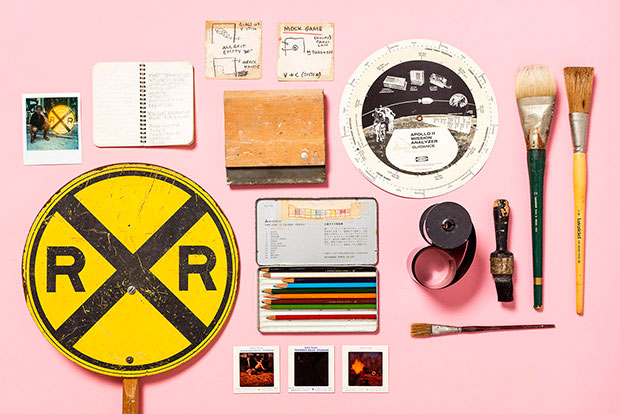
Take a look at the private work tools of Pollock, Rauschenberg, Noguchi, Judd, Calder and Albers
Here's how Nicholas Calcott photographed the personal effects of some of the 20th century's most famous artists
What kind of camera did Josef Albers use? How did Helen Frankenthaler mix her paints? Did Keith Haring’s sneakers get really messy when he worked? All these questions and more are answered in a great new set of photographs of 20th century artists’ artifacts.
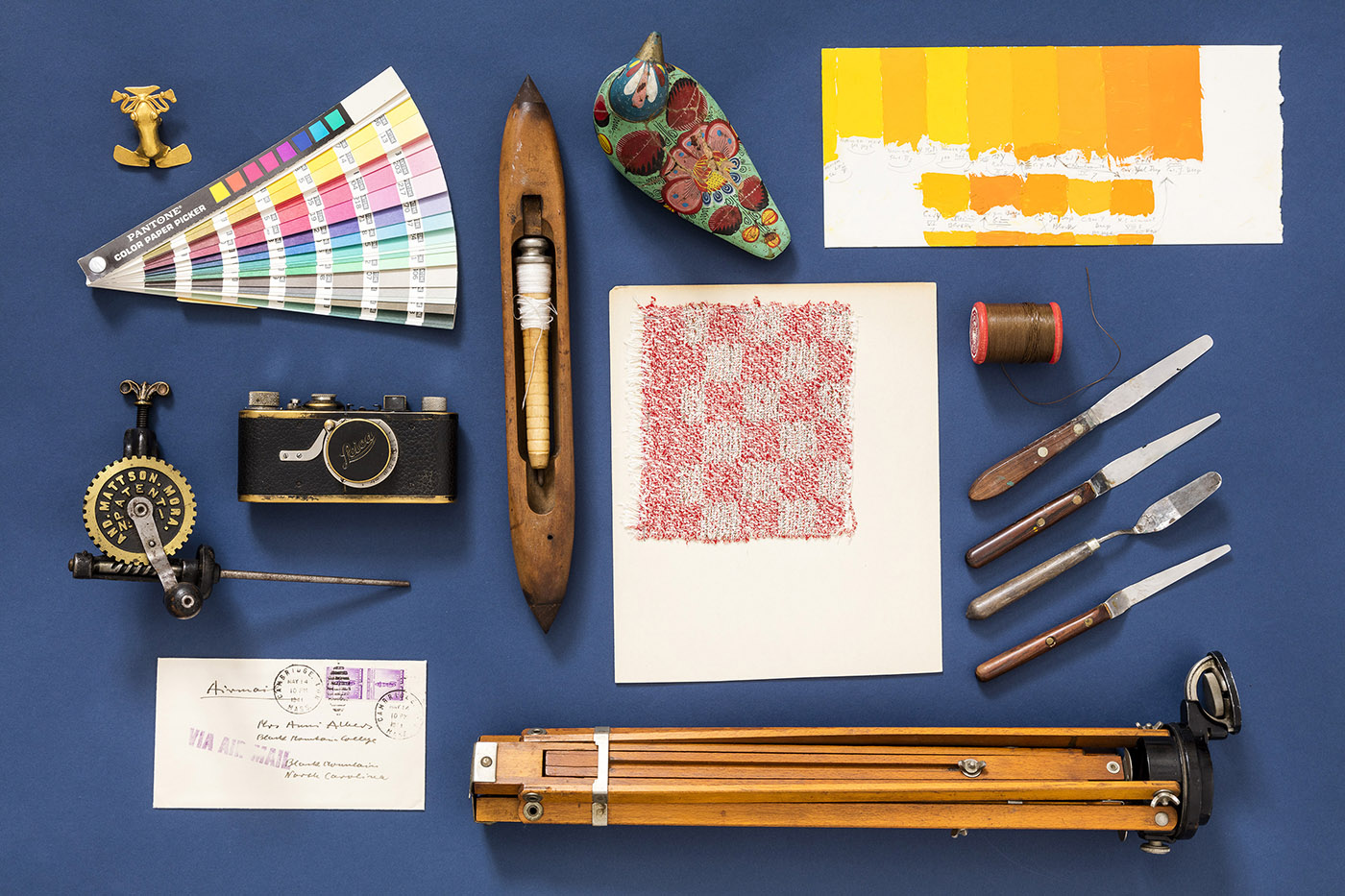
The New York photographer Nicholas Calcott has arranged and shot the personal effects of a handful of famous artists as part of Frieze New York art fair’s 2017 promotional campaign.
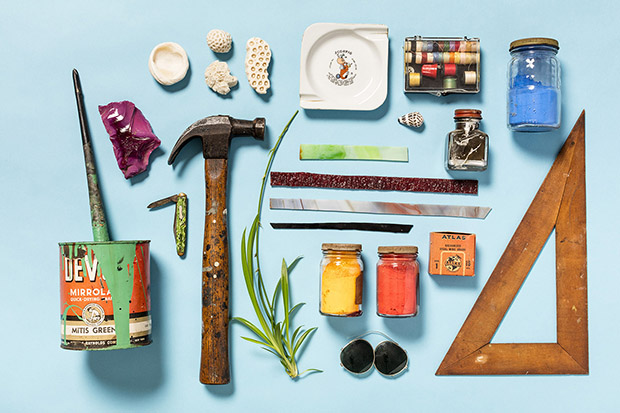
The commission followed Calcott’s 2015 shoot for the New York Times’ T Magazine, in which he photographed Robert Rauschenberg’s personal archive of objects, which included 300 ties, a railroad crossing sign, a LOT of bicycles and plenty more besides.
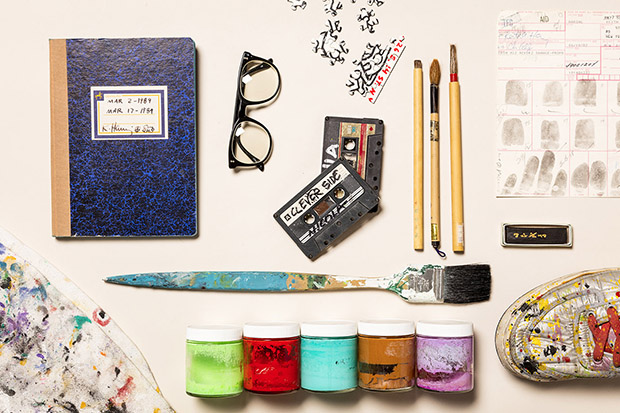
Amy Preston, the head of graphic design at Frieze Art Fair, saw the piece and asked Calcott to push the project a little further. Working with Preston and her colleague Joe Porter, Calcott approached The Josef and Anni Albers Foundation, Calder Foundation, Helen Frankenthaler Foundation, The Keith Haring Foundation, Judd Foundation, The Noguchi Museum, Pollock-Krasner House and Study Center, and Robert Rauschenberg Foundation.
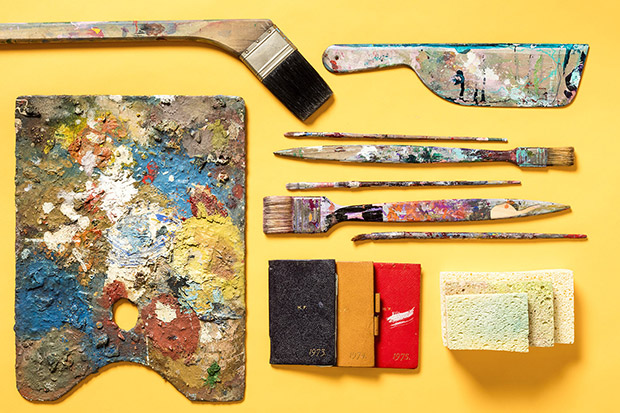
The photographer’s still-life arrangements of these artists tools are pretty in themselves, yet they also encourage us to see these 20th century artists less as historical figures and more as once-active makers of things, who required saws, chisels, tripods, sketchbooks and even – in Rauschenberg’s case – an Apollo Mission circular analyser chart, to create their work.
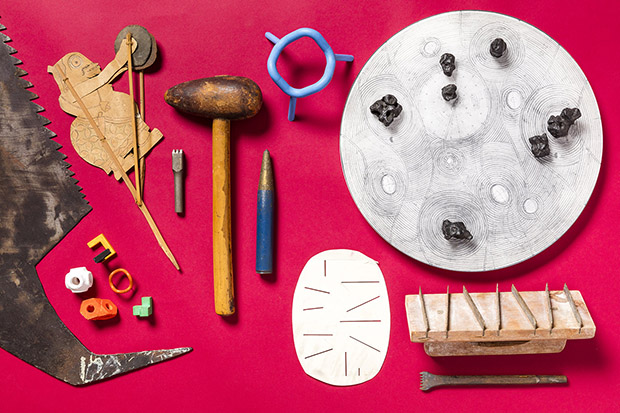
“It was a real pleasure to work on,” Calcott told Phaidon.com, “both to poke around in the lives and work practices of beloved artists like these as well as to get a view into the world of these foundations, dedicated both to preserving the influence and visibility of these careers while also building themselves around the very human lives of their artists.
"My personal highlights include flipping through Lee Krasner’s personal recipe book, poking around in the cameras and photo equipment of Josef and Anni Albers, photographing three generations of Keith Haring’s glasses in his (mostly intact) paint splattered studio, and holding a bowl of ashes of Robert Rauschenberg's pet turtle."
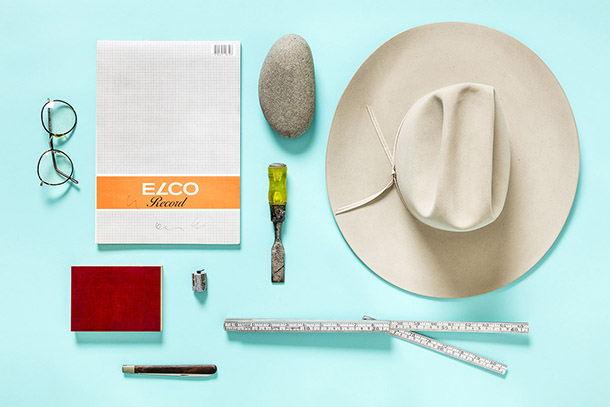
The images, which will serve to promote Frieze New York, look great, but also serve as a canny way for the contemporary art fair communicate the emphasis it will be on 20th century art in 2017.
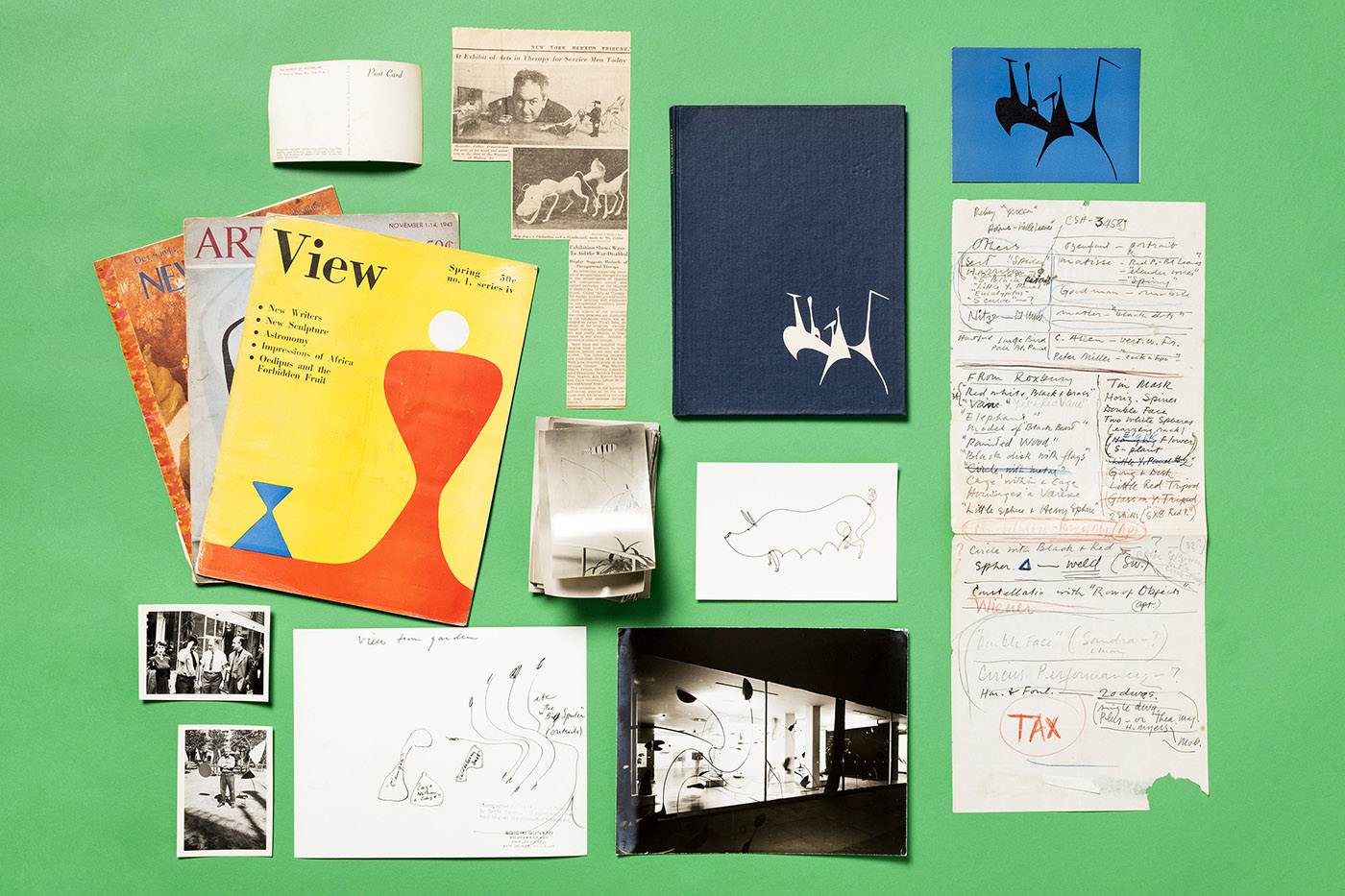
To find out more go here; for more on Robert Rauschenberg order this book; for a kids' introduction to Albers and shape recognition take a look at this book; for more on Noguchi take a look at this title; for more on Jackson Pollock get this title; and for more on Frieze, order this one.